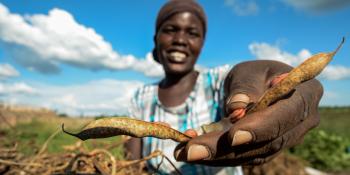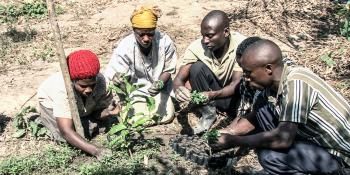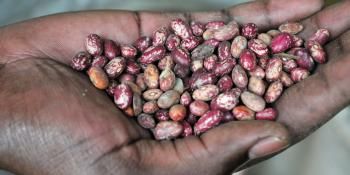Stimulating adoption of nutrition sensitive climate smart agriculture by aligning national level agenda with implementation

The project seeks to support the governments of Uganda and Ethiopia with scientific evidence to support policy action for climate smart agriculture and to align this with nutrition and gender sensitive needs. Research activities will include: (i) understanding the initiatives that the governments and non-state actors have been employing to address food and nutrition insecurity and the institutional infrastructure in place and align this with previous CCAFS work on mainstreaming climate change in policy; (ii) mapping out nutritional needs, opportunities and constraints of men, women and youth along the systems pathway based on the impact of climate change on their livelihoods; (iii) identifying pathways for scaling nutrition sensitive technologies taking into consideration the threat of climate change; (iv) conducting participatory policy analysis with farming communities and scenario-based land use planning to inform climate adaptation priorities and nutrition/gender at district level.
Project Deliverables
Book
Seeing through the farmers’ eyes: An exploration of the life of smallholder farmers in Northern Uganda
Book chapter
The Role of Multi-Stakeholder Platforms for Creating an Enabling Climate Change Policy Environment in East Africa
Journal Article (peer reviewed)
Discursive translations of gender mainstreaming norms: The case of agricultural and climate change policies in Uganda
Book chapter
The Role of Multi-Stakeholder Platforms for Creating an Enabling Climate Change Policy Environment in East
Research workshop report
situation analysis report in Uganda
Presentation/Poster
Discursive translations of gender mainstreaming norms: The case of agricultural and climate change policies in Uganda. Presentation.
Article for media/Magazine/Other (not peer-reviewed)
Embedded a long term consultant to provide technical support to the Ethiopian Ministry of Agriculture
Presentation/Poster
Discursive translations of gender mainstreaming norms: The case of agricultural and climate change policies in Uganda (Presentation)
Presentation/Poster
Evaluating land suitability and potential climate change impacts on feedstock production for resilient livestock in Ethiopia
Research workshop report
Concept Note for Agricultural Transformation Agency (ATA) to Development of Climate Risk Profiles for Agricultural Commercialization Clusters (ACC)
Policy brief/policy note/briefing paper
Unpacking impacts of climate change and variability on agriculture, food security and incomes in Northern Uganda: A gender standpoint. Stakeholder opinions from Northern Uganda
Concept note
Mainstreaming Climate Risk Profiling into Ethiopian ATA Agricultural Commercialization Clusters
Policy brief/policy note/briefing paper
Exploring gender- and nutrition-sensitive climate-smart agriculture value chains for Nwoya District, Northern Uganda
Discussion paper/Working paper/White paper
Project synthesis report
Research workshop report
Developing a basket of CSA options for selected northern Uganda districts (GIZ ProCSA)
Policy workshop/Dialogue report
Livestock Market Information System Stakeholder Workshop
Partners
- Alliance of Bioversity and CIAT - Regional Hub (Centro Internacional de Agricultura Tropical) (CIAT (Alliance))
- HarvestPlus
- International Institute of Tropical Agriculture (IITA)
- Mbale District Local Government
- Ministry of Agriculture and Natural Resources (Ethiopia) (MoANR)
- Ministry of Agriculture Animal Industry and Fisheries (Uganda) (MAAIF)
- Nwoya District Local Government
- Office of the Prime Minister (Uganda) (OPM)
- Utrecht University


